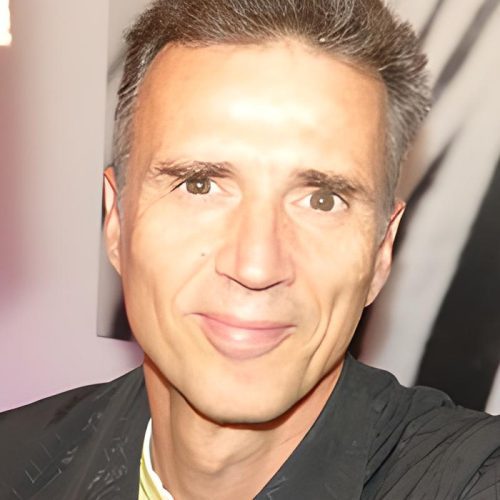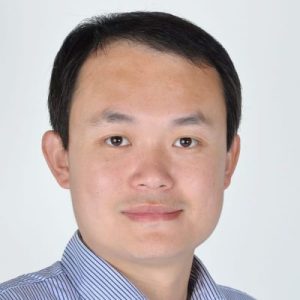In the past decades, climate concern has been growing and electric energy has been identified as one of the key players in the energy transition. Meanwhile, the status of multilevel converters has evolved from ‘new’ to ‘established’ concept with industrial products in each power decade from 1W to 10MW.
Choosing the best semiconductor has thus become more and more difficult because the choice is not guided by the voltage and current to handle: devices with a reduced voltage rating or with a reduced current rating can be respectively connected in series or parallel to build multilevel converters with improved performances: better efficiency, higher power density and/or reduced cost.
To help designers make the right decision, specific methods can be used and design tools have been developed. This includes unified formalism for series-, parallel- and series-parallel- multilevel converters to allow analytic models for pre-design, unified simulation models for easy comparison of simulated waveforms, and modular approach of prototype construction.
In this talk, design tools of different levels of complexity and accuracy that can be used to aid the designer at different stages of the design process will be presented.
With the advancement of AI (Artificial Intelligence), DL (Deep Learning) methods have achieved outstanding performance and great success in a variety of real-world applications. Thanks to the versatility of DL, an increasing number of researchers are attracted to adopting it as a solution approach in diverse fields ranging from renewable energy production to bioinformatics. However, the performance of DL heavily depends on many factors, such as the learning model architecture and the hyper-parameters’ values. Moreover, the possible interactions between these different factors make the design of an effective DL model a complex task for the human practitioner. Recent research suggests EAs (Evolutionary Algorithms), such as GAs (Genetic Algorithms) and SI (Swarm Intelligence) algorithms, as effective candidate methods for the induction and tuning of highly effective DL models. This has been not only motivated but also justified by the ability of EAs to intelligently sample very large and complex search spaces of candidate DL models. Thanks to the prominent results observed and reported in various application domains, a new research field named EDL (Evolutionary Deep Learning) appeared in the machine learning area. The goal of this talk is to introduce the fundamentals of the EDL field by detailing its different components and merits. Eventually, several avenues for future research will be exposed, such as ETL (Evolutionary Transfer Learning) and HW-NAS (Hardware-Aware Neural Architecture Search).
Finally, this talk will be concluded with a set of promising applications of EDL in the green energy sector.
Power electronics plays an important role in renewable power generation for achieving net zero carbon. This talk will first review the recent developments and future trends in the advanced power conversion for renewable power, including wind, solar and energy storage systems. Then, advances in power electronics such as wide-bandgap devices and applications, converter topologies and control, magnetic components as well as advanced design and manufacturing will be presented based on the speaker’s own work in these areas, which will be beneficial for improving the performance and wider adoption of renewable power generation.
Thierry A. Meynard graduated from the Ecole Nationale Supérieure d’Electrotechnique, d’Electronique, d’Hydraulique de Toulouse in 1985, became a Doctor of the Institut National Polytechnique de Toulouse, France, in 1988 and was then an invited researcher at the Université du Québec à Trois Rivières, Canada, in 1989. He joined the CNRS (Centre National de la Recherche Scientifique) as a full-time researcher in 1990, was Head of the Static Converter Group from 1994 to 2001. From 2010 to 2018 he has been associate director of the national program 3DPHI (3-Dimensional Power Hybrid Integration). He is now Directeur de Recherches CNRS at the LAPLACE(*) and Fellow of the IEEE, but in parallel he has been also involved in several industry-related activities.
Thierry A. Meynard has been part-time consultant with Cirtem from 2000 to 2016. In 2016 he co-founded and became scientific advisor at the company Power Design Technologies that develops PowerForge, the software for design of 2- and multi-level power converters later acquired by Gamma Technologies. Since January 2020, he is also acting as an independant consultant to transfer more innovation into industrial products.
His main research interests are related to series and parallel multicell converters, magnetic components and the development of design tools for power electronics.
T.A. Meynard is co-inventor of several topologies of multilevel converter used by ABB, Alstom, Cirtem, General Electric, Schneider Electric : ‘Flying capacitor’, ‘Stacked MultiCell’, ‘5LANPC’, ‘AC/AC chopper’, xPlexed choppers….
(*) Laboratoire Plasma et Conversion d’Energie, UMR CNRS n° 5213, B.P. 7122, 2, rue Camichel, 31071 Toulouse Cedex 7 FRANCE
Slim Bechikh (SMIEEE) received the B.Sc., M.Sc., Ph.D., and Habilitation degrees in Business Informatics from the University of Tunis, ISG-Tunis, Tunisia, in 2006, 2008, 2013, and 2015, respectively. He is currently Full Professor with the University of Carthage, FSEG-Nabeul, Tunisia.
He is also a Research Director within the SMART laboratory, ISG-Tunis, University of Tunis, Tunisia. He published over 100 papers in peer-reviewed journals and refereed conferences. His current research interests include evolutionary optimization, machine learning, deep neural networks, business analytics, and SBSE. Dr. Bechikh was a recipient of the Best Paper Award of the ACM SAC-2010 in Switzerland. He supervised the Tunisian best national Doctoral thesis in ICT for the year 2019, which earned a presidential prize in scientific research and technology. He was promoted to the grade of IEEE Senior Member by August 2021.
He is Associate Editor for IEEE TRANSACTIONS ON EVOLUTIONARY COMPUTATION and SWARM AND EVOLUTIONARY COMPUTATION. He serves as reviewer for over 80 international journals in artificial intelligence and its applications.
Xibo Yuan obtained his PhD degree from Tsinghua University and has worked at the University of Bristol and China University of Mining and Technology. He held the Royal Academy of Engineering Chair in Advanced Aircraft Power Generation Systems and was the Director of the UK National Centre for Power Electronics. His research interests include power electronics and motor drives, wind power generation, multilevel converters, application of wide-bandgap devices and more electric aircraft technologies. He is a Fellow of IET and received The Isao Takahashi Power Electronics Award in 2018. He is a Distinguished Lecturer of the IEEE Power Electronics Society and received several prize paper awards from IEEE journals and conferences.
2024 IEEE President & CEO
Tom Coughlin, President, Coughlin Associates is a digital storage analyst and business and technology consultant. He has more than 40 years in the data storage industry with engineering and senior management positions at several companies.
An IEEE Life Fellow, Dr. Coughlin has many publications and six patents. He is also the author of Digital Storage in Consumer Electronics: The Essential Guide, which is now in its second edition with Springer. Tom is a regular storage and memory contributor for forbes.com and media and entertainment organizations. Coughlin Associates consults and publishes books and market and technology reports, including The Media and Entertainment Storage Report and an Emerging Memory Report, and puts on digital storage-oriented events.
Tom has served in numerous IEEE volunteer leadership roles, including President of IEEE-USA, Director of IEEE Region 6, Vice President and Board member of the IEEE Consumer Technology Society, Chair of the Santa Clara Valley IEEE Section, and Chair of the Consultants Network of Silicon Valley. He is also active with the Storage Networking Industry Association (SNIA) and the Society of Motion Pictures and Television Engineers (SMPTE).



